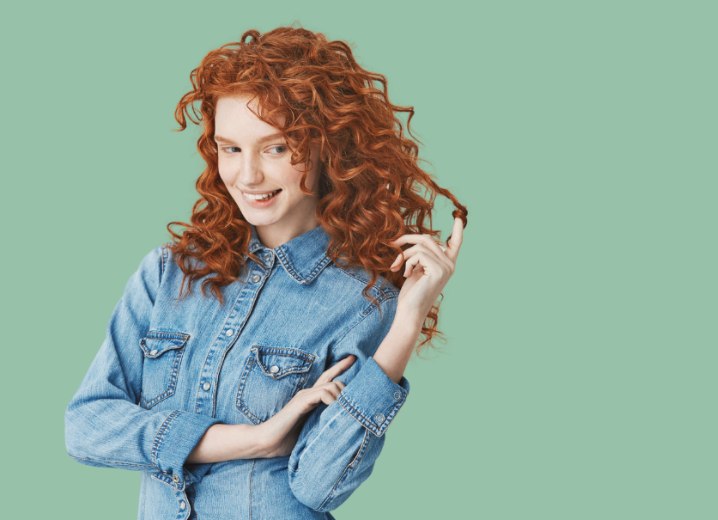Teens with Different Hair

"Ginger Nut", "Carrot Top", "Ginger Minger" and "Fred the Red" are all names derogatorily given to people who have red hair. While a ginger, who is now in their 40s, may have accepted their hair color as God's way of making them "stand out from the crowd," try telling a teenager that it is "good to be different" and that their hair is representative of their uniqueness.
Teenagers live and thrive on being considered "trendy" and "cool," and any physical attribute that is considered "different" can often make growing up a struggle, not only because of the bullying that the more "unusual" teenager is often forced to endure, but also because teenagers, generally speaking, like to look the same as their friends.
Mild Taunts to Grim Persecution
Most people can remember a red-haired kid in their grade at school. Was the kid the "class leader", the one the guys were lining up to date and who the girls all wanted as their best friend? Unlikely! "Gingers" or redheads are more likely to be the target of the classroom joke, who are persistently teased for having a "brighter" head of hair.
Schools vary tremendously, and while many redheaded students are subjected to mild taunts of affection, which they have accepted and perhaps have even grown to like, others can be forced to tolerate years of harsh hounding and discrimination solely because of the color of their hair.
Michele Eliot, the American director of the children's charity Kidscape, often deals with teenagers who have red hair and are thus the victims of bullying and abuse at school. She admitted that it was mostly teenage boys who were the biggest sufferers of such prejudice.
Although teenage girls are far from immune to similar victimization, in later life women with red and ginger hair are often considered very attractive and sexy, while men possessing a similar shade of hair color rarely reach similar levels of "sexiness" and attraction.

"In other countries, redheads will get teased at school, but it stops when they become adults. If you are a woman, you are fiery, alluring, and sexy."
Many intelligent and equally sensitive teenagers, who would never consider themselves to be "bullies," join in the name-calling and mild teasing of the kid with ginger hair. While subjecting a teenager of an ethnic minority or a youngster who is overweight to similar taunts would be unthinkable for many teenagers. This is because victimizing adolescents, and often adults, for the color of their hair has become somehow socially acceptable.
Journalist Sharon Jaffa is also a redhead, and believes that society must put an end to this "ginger baiting" which usually starts in the classroom, with vulnerable and sensitive teenagers. Jaffa commented:
"Growing up as a redhead, I was lucky enough to escape with only the occasional name-calling. But attacking someone on the basis of their hair color can be just as damaging as persecuting someone for their race or religion, and therefore, in some cases, needs to be taken as seriously."
Continue reading ...